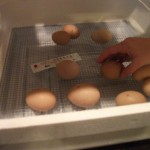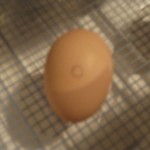I have to admit – I love quotes. Words that are meaty enough that they serve as inspiration or make one pause to reflect. I think about this every once in awhile when I come across an inspirational quote – choosing my signature classroom quote. Professors encourage reflection so I encounter a bounty of quotes each semester. Kids, well people of all ages, are motivated by wonderful words. How do you think so many self-help/motivational books sell? Here it is – THE ONE I HAVE CHOSEN 🙂
You have brains in your head. You have feet in your shoes. You can steer yourself in any direction you choose. You’re on your own. And you know what you know. You are the guy who’ll decide where to go.
— Dr. Seuss
It’s the idea of taking responsibility for your course in life which is so appealing. Confucious, Ghandi, Martin Luther King, Eleanor Roosevelt, oh the list is long of those with much to say, yet children respond to what they know. Most American children have been introduced to Dr. Seuss books and the children in my classroom will certainly know him. Though the simple rhyming words are usually read to preschoolers, notice the magnitude of thought in Seuss books. Consider Yertle the Turtle and Other Stories, a story which recently sparked controversy in Canada, yet still has topics worthy of discussion: individual rights and bullying come to mind. To clarify, the book was not banned, only the use of its quotes as a political tool in a labor dispute, but it bears interesting reflection on the potential dangers of dramatizing a single event/issue. Regarding Yertle the Turtle, the book provides a starting point to discuss government. Our youngest recently researched socialism. The entire 5th grade at her school (3 classes) was broken into groups to research various forms of government then discuss advantages and disadvantages of each. The experience opened my daughter’s eyes to different countries and ways of living, especially now with so many governments going through dramatic changes. Messages of any book can be twisted; it’s our responsibility to teach kids to critically examine what they read. Yes, Dr. Seuss admitted to subtly including political beliefs, but so subtle that it is insubstantial unless intentionally raised to one’s attention. His books aren’t promoting anarchy. They share ideas of caring for our environment, treating all people/creatures with respect, and perseverance. Ideas worthy of sharing.



